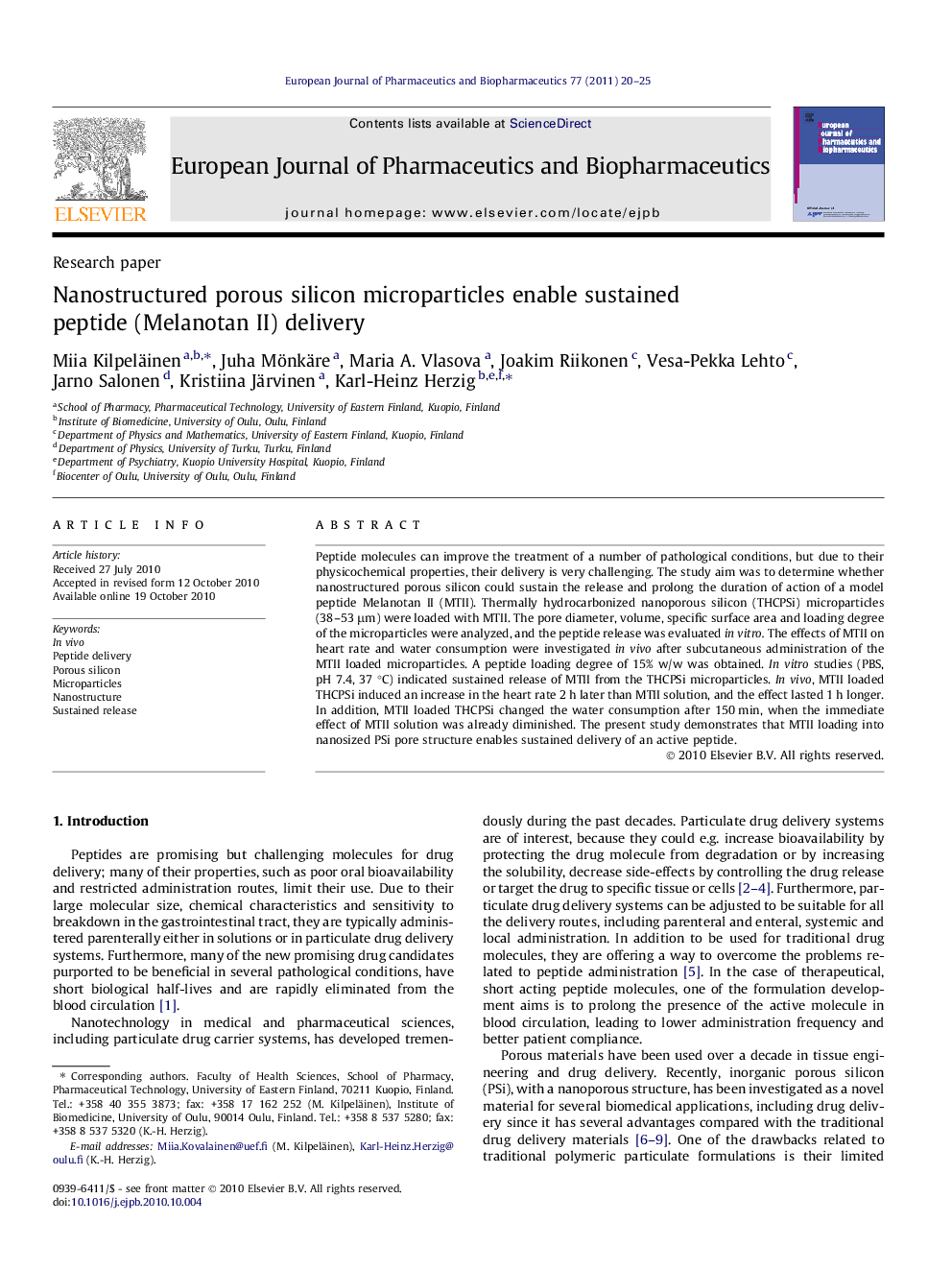| Article ID | Journal | Published Year | Pages | File Type |
|---|---|---|---|---|
| 2084209 | European Journal of Pharmaceutics and Biopharmaceutics | 2011 | 6 Pages |
Peptide molecules can improve the treatment of a number of pathological conditions, but due to their physicochemical properties, their delivery is very challenging. The study aim was to determine whether nanostructured porous silicon could sustain the release and prolong the duration of action of a model peptide Melanotan II (MTII). Thermally hydrocarbonized nanoporous silicon (THCPSi) microparticles (38–53 μm) were loaded with MTII. The pore diameter, volume, specific surface area and loading degree of the microparticles were analyzed, and the peptide release was evaluated in vitro. The effects of MTII on heart rate and water consumption were investigated in vivo after subcutaneous administration of the MTII loaded microparticles. A peptide loading degree of 15% w/w was obtained. In vitro studies (PBS, pH 7.4, 37 °C) indicated sustained release of MTII from the THCPSi microparticles. In vivo, MTII loaded THCPSi induced an increase in the heart rate 2 h later than MTII solution, and the effect lasted 1 h longer. In addition, MTII loaded THCPSi changed the water consumption after 150 min, when the immediate effect of MTII solution was already diminished. The present study demonstrates that MTII loading into nanosized PSi pore structure enables sustained delivery of an active peptide.
Graphical abstractPeptide administration with nanoporous silicon microparticles delays and prolongs in vivo effects, when compared with a peptide solution. This indicates sustained peptide release from porous silicon.Figure optionsDownload full-size imageDownload as PowerPoint slide
